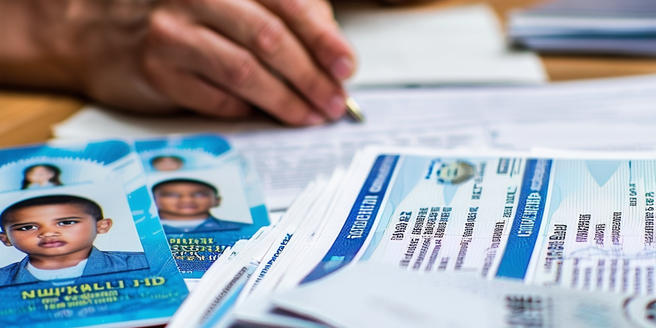
Understanding the Importance of Personal Identification in Filing
In any filing process, accuracy is paramount. Personal identification plays a crucial role in ensuring that the information is correctly attributed to the right individual. Mistakes in identification can lead to errors, delays, or even legal issues. Having accurate personal identification ensures that records are maintained correctly, minimizing misunderstandings. For businesses and individuals alike, understanding the significance of proper identification helps streamline processes and avoid potential pitfalls. Often, the smallest errors can have significant repercussions, highlighting the need for vigilance. Special attention to detail is necessary to ensure that every document is correctly linked to the person it represents, reducing the potential for costly mistakes. This careful attention also enhances compliance with regulations and guidelines.
Common Mistakes to Avoid with Personal Identification
Mistakes with personal identification in filing can lead to severe consequences. One common error is using outdated identification documents, which may no longer be valid, causing delays or rejections in filing. Additionally, using an identification document that has expired can complicate matters further. Another mistake is neglecting to double-check personal details for accuracy, such as spellings of names or digit errors in identification numbers. It’s also essential to ensure consistency across all documents to prevent conflicts. Failing to update records promptly after changes, such as a name change, is another frequent oversight. By being vigilant and verifying all details thoroughly, you can avoid these common pitfalls and ensure a smoother filing process, reducing the risk of errors.
Essential Personal Identification Documents for Accurate Filing
While accurate filing requires various personal identification documents, some are universally essential. The primary document is a government-issued ID, such as a passport or driver’s license, serving as official proof of identity. Birth certificates are crucial for establishing identity and age. In addition to these, maintaining secure digital copies can also be beneficial in case the physical documents are lost. Social Security cards or numbers are often needed for tax filings and other official purposes. In some cases, utility bills or bank statements may be required to confirm addresses. It’s important to have up-to-date copies of these documents to avoid any filing disruptions. Having these documents organized and accessible greatly aids in maintaining accuracy and efficiency in your filing process.
How to Verify Your Personal Identification Information
Verification of personal identification information is critical for maintaining accuracy in filing. Start by ensuring that all personal details match across every document. Double-check names, social security numbers, and personal data for any inconsistencies. Regularly update documents following any personal changes, such as marriage or relocation, to keep records current. Utilizing online verification tools can enhance the accuracy of your information. It is also crucial to train employees on the importance of data verification to minimize errors. In organizations, conducting regular audits of employee identification data helps detect and correct discrepancies. Additionally, keeping a checklist of required documents can aid in confirming that all necessary identifications are present and properly validated before submission.
Tips for Keeping Your Personal Identification Secure
Ensuring the security of your personal identification is critical in safeguarding against identity theft and fraud. Always store sensitive documents, like passports and social security cards, in a secure place, such as a safe. Shred any physical copies of documents you no longer need. For digital records, use secure, encrypted storage solutions. Additionally, consider setting up two-factor authentication for an extra layer of security on your accounts. Be wary of phishing scams and do not share personal information unnecessarily. Regularly update passwords and security questions for online accounts where personal details are stored. By taking these precautions, you can protect your personal identification from unauthorized access and maintain its integrity in both physical and digital forms.
